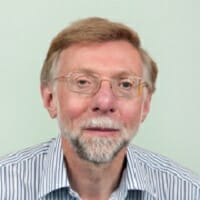
An antioxidant drug reverses atherosclerosis and could be used to prevent heart attacks and strokes due to clots, according to a study by researchers at the University of Reading, based in the U.K.
Atherosclerosis is the build-up of fatty deposits in the arteries. When a type of fat called LDL cholesterol becomes oxidized and builds up to form plaques in the artery walls, inflammation and damage increase, which can cause the plaques to rupture and blood to clot. These clots can block vital arteries that allow blood to flow to the heart and lead to a heart attack, or to the brain causing a stroke.
Led by University of Reading Biomedical Sciences Professor David Leake, the scientists found that the antioxidant drug cysteamine has the power to switch off, and even reverse, this damaging process. The drug works by accumulating in the lysosomes and stopping the oxidation of LDL cholesterol. It is already known to be safe in humans where it’s used to treat a rare lysosomal disease called cystinosis.
When the researchers looked at mice with atherosclerosis, those treated with cysteamine had a 32% to 56% reduction in the size of atherosclerotic plaques. Cysteamine also decreased the amount of oxidized fat by 73% and increased the stability of the atherosclerotic areas. Moreover, it cut the proportion of inflammatory white blood cells by 55% and expanded the area made up of smooth muscle cells by 85%, ultimately reducing the chance of plaques rupturing and causing a blood clot, according to Leake.
“We hoped it would cause plaques to grow at a slower pace, but we were amazed to find it reversed the process,” Leake said. The study was funded by the British Heart Foundation and ran in JAHA: Journal of the American Heart Association.
With cardiovascular diseases continuing to be the leading cause of death globally, the findings offer hope to the many, noted James Leiper, associate medical director at the British Heart Foundation.
“If this antioxidant drug can show the same promising effects in humans, then it could offer a lifeline to thousands of people in the future,” he said.





